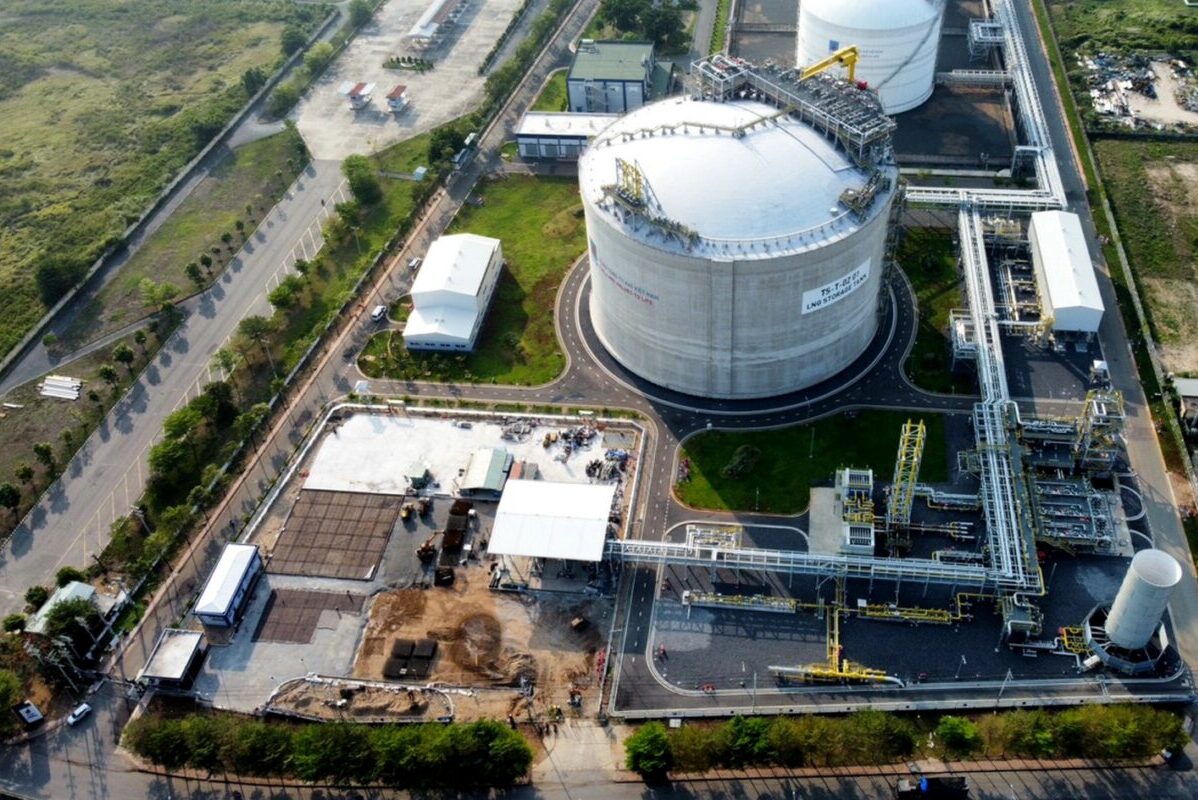The development and introduction of liquefied natural gas (LNG) power could help increase energy efficiency, reduce dependence on coal-fired power plants, lower emissions, protect the environment and bring Việt Nam closer to its sustainable development goals, a forum held in Hà Nội was told on Thursday.
Tạ Đình Thi, deputy head of the National Assembly’s Science and Technology Committee, said international practices have demonstrated LNG as a great transition power for countries looking to switch to greener and more environmentally friendly energy.
“Our priorities should be on investing in technical infrastructure to support the import and consumption of LNG, the rapid development of gas-fired power plants using LNG,” he said.
He said LNG power could play an important role in the Southeast Asian country’s commitment to bringing down its emissions after the Paris Climate Conference (COP21).
Dr Nguyễn Minh Phong said there are numerous advantages in developing gas-fired electricity in Việt Nam with the development of gas-fired power plants using both natural gas and LNG, a key component, in the country’s efforts to ensure power supply and promote energy transition.
In light of the significant challenges faced by Việt Nam in meeting electricity demand and energy security by 2030, he said there is a need for rapid scale-up while transforming the structure to approach the goals of carbon neutrality and balanced development across regions, sources, and transmission capacity.
Of these, developing Việt Nam’s power sources has been said to be a challenging task as the country’s hydroelectricity has reached its limit while commitments to international agreements likely severely handicap the proliferation of coal-fired power after 2030. Other power sources such as biomass power, nuclear, hydro and ammonia gas all face problems in capacity and commercialisation.
“The development of LNG-fired power plants will help the power industry become greener and reduce dependence on coal-fired power plants, which currently account for a considerable proportion of the existing supply,” Phong said.
However, industry experts and insiders said some issues must be addressed to unlock the full potential for LNG development in Việt Nam.
Firstly, to develop gas electricity, the country needs to improve its current legal framework, especially regulations and standards regarding technology, trade and finance as a basis for investment which will allow the construction of modern ports at strategic locations capable of receiving large LNG ships.
Secondly, policies to govern the LNG industry must be comprehensive and consistent to cover the operational and logistical aspects of the industry and electricity pricing.
Asst Prof and financial expert Đinh Trọng Thịnh advised the Government to establish a plan to mobilise resources and develop the domestic LNG market, in line with the recently announced Power Plan VIII.
He called for greater cooperation from provincial and municipal authorities in creating a more favourable business environment for investors, and faster support in resolving difficulties in land clearance and other administrative procedures, which have been major causes behind many delays in the implementation of LNG projects.
Given the nature of LNG projects, which typically require billions of dollars in investment, Thịnh said there should be a detailed and comprehensive legal framework and management mechanisms. — VNS

